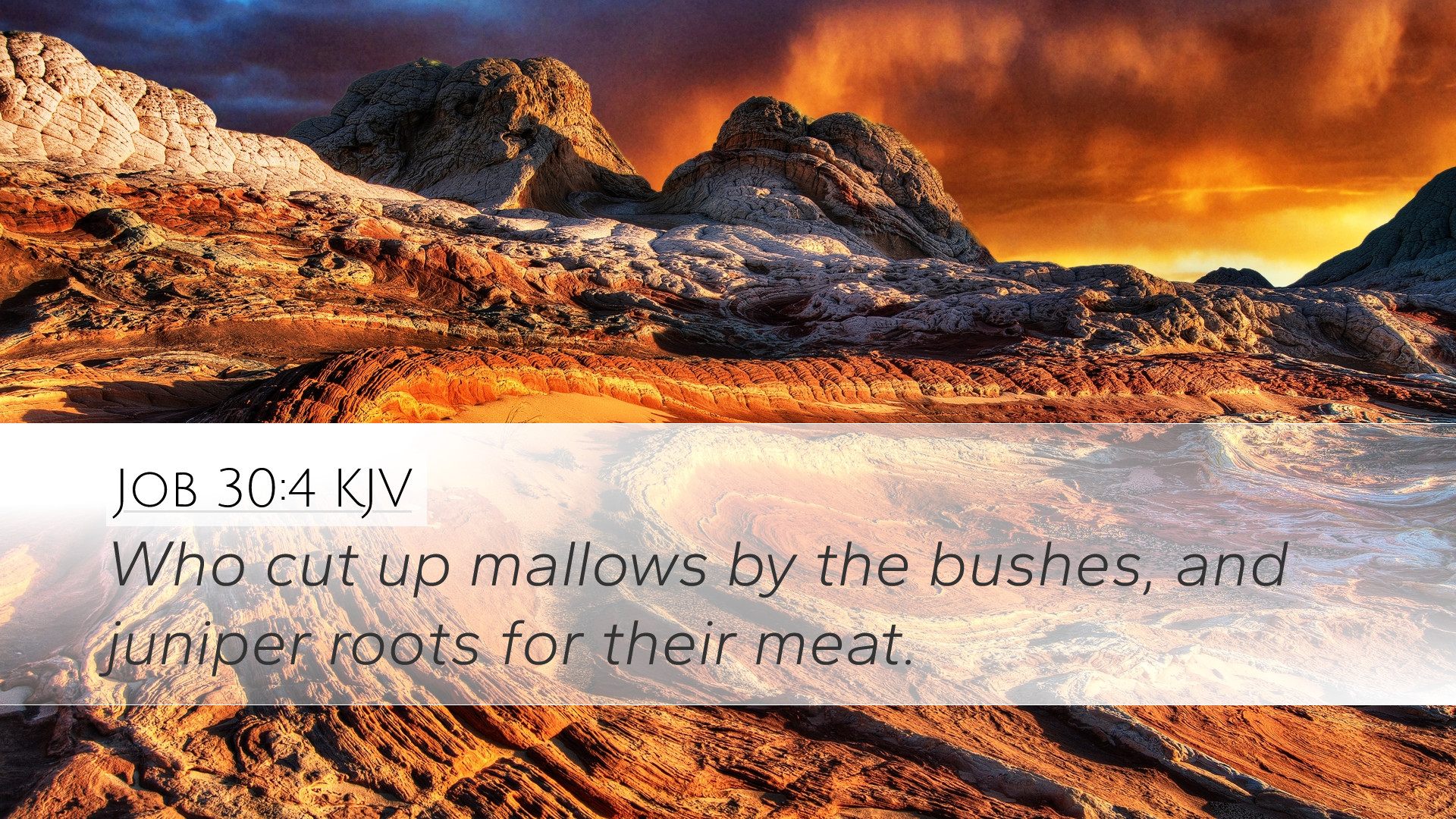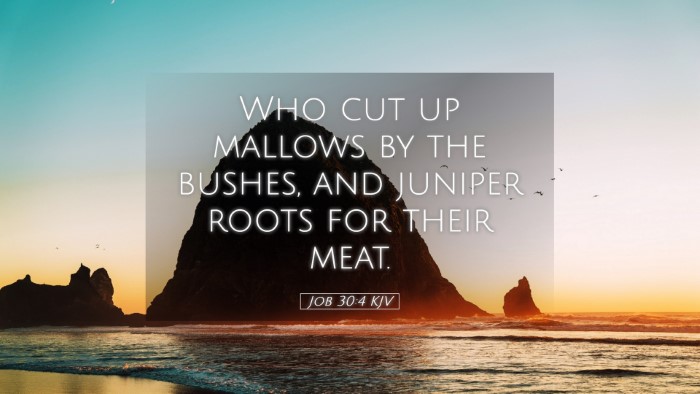Commentary on Job 30:4
Job 30:4 states: "Who cut up mallows by the bushes, and juniper roots for their meat." This verse captures a moment in Job's reflection upon his suffering and the stark contrast it presents with his past status. The profound implications of this verse warrant a detailed exploration, drawing insights from esteemed public domain commentaries.
Contextual Background
In the Book of Job, we find a narrative depicting the trials of Job, a man of great affliction who lost his wealth, health, and family. His lamentation in this chapter reflects deep sorrow and humiliation. The mention of "mallows" and "juniper roots" symbolizes a drastic fall from prosperity to a state of mere survival and subsistence.
Job's Lament and Reversal of Fortunes
As Matthew Henry posits, the mention of these humble roots denotes Job’s current plight compared to the feasts and abundance he once enjoyed. Job's dignity has been stripped away, and he is reduced to eating what is considered [...] humiliating and desperate.
Contrast of Past and Present
Albert Barnes emphasizes the significance of the comparison between Job's former opulence and his present desolation. He notes that the very people who once honored Job are now beneath him, categorizing him with the lowliest of society. This verse is critical in conveying Job's internal struggle and the loss of social standing along with material wealth.
Symbolism of Mallow and Juniper
The plants mentioned hold deep symbolic meaning. Mallow, typically found in dry regions, indicates the hardships faced, while juniper roots, known for their ability to grow in adverse conditions, symbolize the resilience Job must now adopt.
Nature as a Reflection of Suffering
Adam Clarke explains that Job refers to these specific plants to illustrate the harshness of his current survival mode. Through these natural elements, Job’s pain is showcased, suggesting that just as these plants grow in meager soil, Job finds himself surviving in despair.
Theological Implications
This verse opens up significant theological considerations regarding human suffering. It invites readers to explore the nature of God’s justice and the place of suffering in the life of the righteous. Job's condition reflects a profound paradox; a devout man reduced to subsistence.
Lessons on Humility
The journey through suffering often leads to greater humility. Henry notes that it is in these low moments that the faithful can find a deeper dependence on God. The contrast encapsulated in Job 30:4 signifies the journey from pride to humility, urging believers to rely on divine providence rather than their own understanding.
Application for Pastors and Theologians
For pastors and theologians, this verse serves as an opportunity to teach about the human experience of suffering and divine sovereignty. It emphasizes the importance of empathy and understanding towards those enduring trials. Leaders are reminded to address the emotional and spiritual struggles of their congregants, encouraging them to trust in God amidst their circumstances, as illustrated by Job.
Engaging with the Suffering
The insights from this verse inspire pastoral care that is rooted in the reality of human suffering. Emotional and spiritual support is essential, as one reflects on Job’s lament and acknowledges the pain present in the world today.
Conclusion
Job 30:4 is more than a mere statement about food; it is a reflective lens into the experience of profound suffering and the spiritual journey through it. The combined insights from Henry, Barnes, and Clarke elucidate the stark realities of human existence and the call to humility, empathy, and reliance on God. Thus, this verse remains a poignant reminder for all – a touching verse that resonates deeply within the hearts of believers facing trials.


